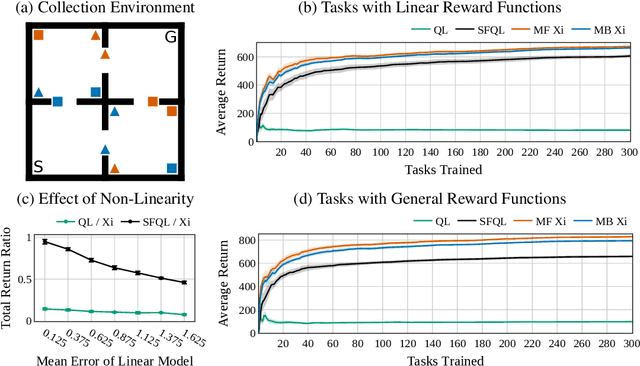Xi-Learning: Successor Feature Transfer Learning for General Reward Functions
Paper and Code
Oct 29, 2021



Transfer in Reinforcement Learning aims to improve learning performance on target tasks using knowledge from experienced source tasks. Successor features (SF) are a prominent transfer mechanism in domains where the reward function changes between tasks. They reevaluate the expected return of previously learned policies in a new target task and to transfer their knowledge. A limiting factor of the SF framework is its assumption that rewards linearly decompose into successor features and a reward weight vector. We propose a novel SF mechanism, $\xi$-learning, based on learning the cumulative discounted probability of successor features. Crucially, $\xi$-learning allows to reevaluate the expected return of policies for general reward functions. We introduce two $\xi$-learning variations, prove its convergence, and provide a guarantee on its transfer performance. Experimental evaluations based on $\xi$-learning with function approximation demonstrate the prominent advantage of $\xi$-learning over available mechanisms not only for general reward functions, but also in the case of linearly decomposable reward functions.
 Add to Chrome
Add to Chrome Add to Firefox
Add to Firefox Add to Edge
Add to Edge